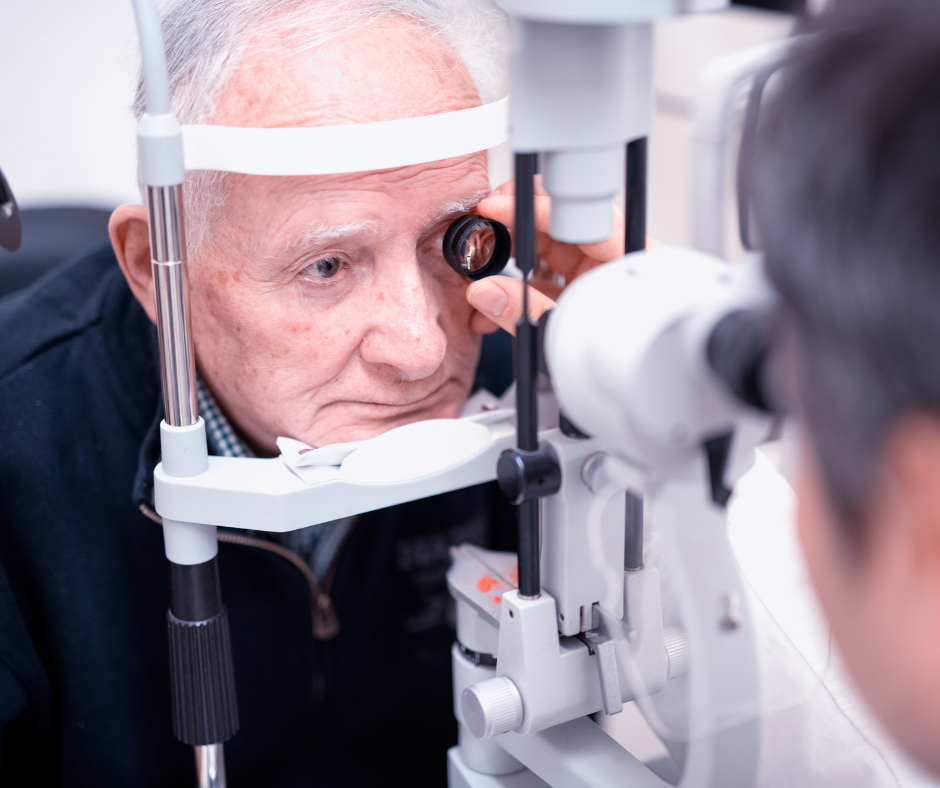Seniors are in the highest risk category for glaucoma and could experience symptoms of the condition at any time. For many elderly individuals, the problem isn’t that glaucoma develops, the issue is that the person cannot get access to needed eye care.
Older residents who live alone may not have access to family members that can take the person to the doctor quickly. Those who don’t have any family may face total blindness because the individuals cannot drive anymore. Seniors who live in a community have access to a wealth of services at any time.
What Is Glaucoma?
Glaucoma is an eye disease that damages the optic nerve and can lead to total blindness. People with a family medical history of glaucoma are at the highest risk of developing the eye disease. Most individuals who are diagnosed with glaucoma see signs of the disease at around 60 years of age.
While not everyone who has glaucoma develops complete blindness, the disease can still cause serious vision impairments. Residents living in a senior living community can get a fast assessment through a local eye care specialist.
Who Is at Risk of Developing It?
Studies show that all individuals who are at least 60 years of age could develop glaucoma. However, the person is more likely to have glaucoma if close relatives, such as a parent, had the eye disease. Whenever the resident undergoes an eye examination, the doctor will review the eyes for signs of glaucoma and measure the pressure in the eye. Residents who live in assisted living have the opportunity to get an eye examination if there are any signs of the eye disease.
What Are the Known Symptoms?
The symptoms of glaucoma start with sudden changes in vision and headaches. The person will experience dilated pupils, halos around all lights, eye redness, throbbing pain in the eyes, nausea, and vomiting. If the person is experiencing any of these symptoms, the resident can tell the community’s staff and get assistance quickly. The faster the eye disease is diagnosed, the faster treatment is provided.
What Causes Glaucoma?
The prevailing cause of glaucoma is fluid buildup in the eye that doesn’t drain appropriately. The eyes have a channel that can become blocked and prevent the fluid from draining and, instead, the fluid or aqueous humor increases pressure in the eye. Inflammatory conditions that affect the eyes are another cause, and these issues are created when a blood vessel is blocked.
What Are the Risk Factors?
The risk factors for glaucoma begin with age, and most people diagnosed are at least 60. However, studies show that some individuals who are 40 and even infants can develop the eye disease. African Americans are at a greater risk of glaucoma.
Anyone who is near or farsighted could develop glaucoma. Other risk factors are medications for overactive bladder, diabetes, and steroid-based medications. A person with high blood pressure, sickle cell anemia, or a previous history of eye injuries can get glaucoma.
Are There Ways to Prevent Glaucoma?
Doctors can prevent the lasting effects of glaucoma by prescribing eye drops, medications, and performing laser surgery. The stage of the disease and how glaucoma affects the person determines what treatment is most effective. The doctor will start with eye drops and provide additional therapies as needed.
Wonderful Homes for Seniors
At The Gardens of Sun City Senior Living, we provide wonderful homes for seniors and offer private apartments with style. All residents have access to incredible services in our community including memory care and transportation to and from doctor appointments. Families and prospective residents can learn more about our community by setting up a full tour of the community now.
Glaucoma is a serious eye disease that can lead to total blindness if the person doesn’t get fast treatment. There are several signs of glaucoma, including eye pressure, headaches, nausea, vomiting, and severe eye pain. Any senior who is experiencing these symptoms needs to go to the eye doctor for a full assessment.
A senior community can provide assistance for elderly residents who are experiencing any signs of glaucoma. The staff at the community provides transportation to and from the doctor’s office to get an eye exam, and the transportation services are helpful for anyone who needs ongoing care.
With proper treatment, the residents won’t face total blindness or experience further symptoms. Medications, eye drops, and surgeries are effective treatments for the eye disease. By learning more about glaucoma, seniors can get help faster and avoid the serious repercussions of the disease.

